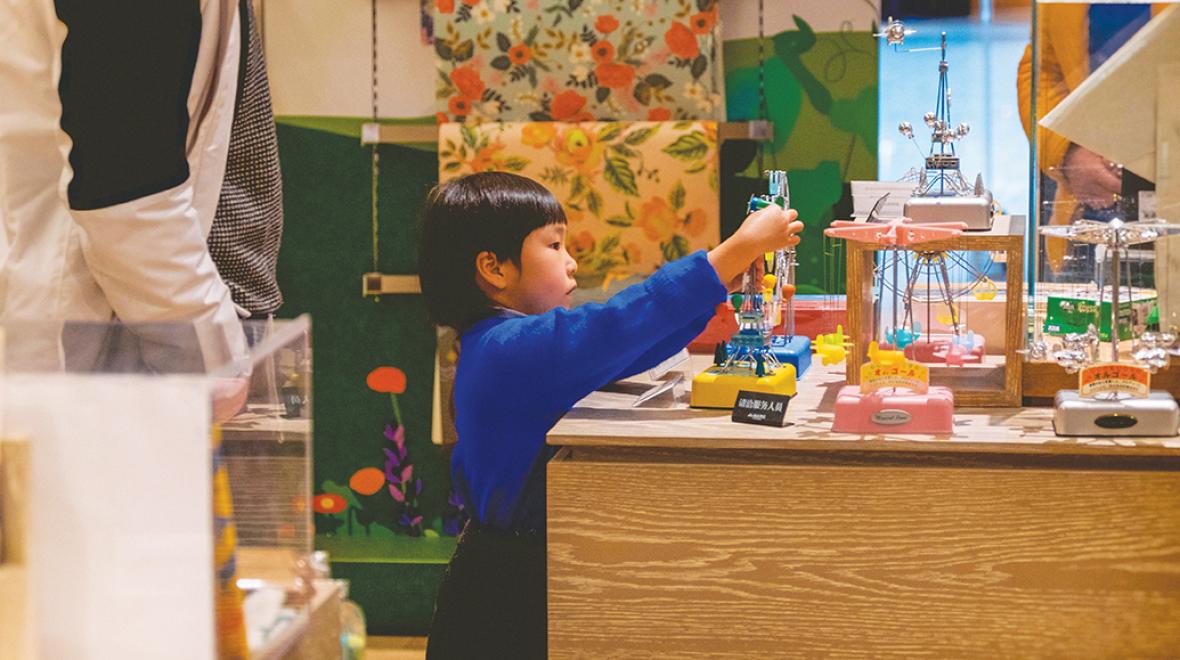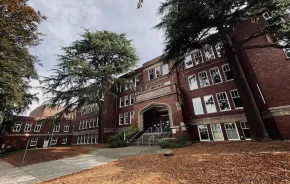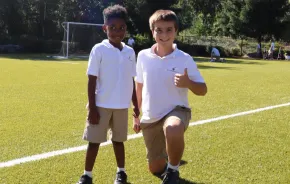
Photo:
Jerry Wang/Unsplash
Young children aren’t usually known for their intense concentration. On the contrary, kids are expected to bounce from one activity to another with the attention span of a gnat. That’s why parents may be surprised by what they see when they tour a Montessori school: Children as young as 3 happily engaged in independent, focused work for long stretches. This ability to focus at a young age is a hallmark of Montessori education, but it’s revolutionary to parents who haven’t seen a Montessori classroom in action.
Montessori learning is hardly novel — Maria Montessori’s first school opened its doors in 1907. But a trend toward mindfulness in education has sparked new and sustained interest in this century-old style of education, and science has shown how this type of learning benefits today’s young minds.
Mastering mindfulness
Over the past couple of decades, organizations like the Association for Mindfulness in Education and Mindful Schools have sprung up, training teachers, hosting conferences and producing research aimed at helping children become more focused, motivated and intentional in the classroom.
Just what is mindfulness, exactly, and why does it matter? Mindful Schools paints mindfulness as deep, in-the-moment focus, characterized by self-awareness and internal motivation. In a world filled with chaotic distraction, advocates of mindfulness say it can be a salve for the conflict, impulsiveness and stress plaguing modern students and schools.
Steven J. Hughes, Ph.D., a pediatric neuropsychologist specializing in attention, concentration, planning and organizing — a set of cognitive traits known as executive functions — defines mindfulness as “sustained positive engagement.” Other scientists refer to a “flow” state of prolonged, energized work that produces both calm satisfaction and profound joy in learning.
Whole body, whole mind
Maria Montessori didn’t coin the term “mindfulness,” but she was an early advocate of sustained focus and internal motivation. Her methods deliberately encourage intense concentration as the best context for early learning.
Montessori’s approach to motor development actually stimulates cognitive development and deep concentration, according to Hughes. When children begin Montessori education at age 3 or 4, they work on motor-skills activities, such as sweeping, polishing silverware and pouring. These aptly named “practical life” activities prepare kids for greater independence and self-reliance in daily tasks, but there’s something bigger going on: the development of higher cognitive functions essential to concentration and attention.
Montessori tasks like wiping a table and washing dishes develop fine motor control, but they also activate areas of the prefrontal cortex essential to executive function, which paves the way for greater concentration and focus, Hughes says. Montessori wrote about the close relationship between cognitive development and motor development in 1949; 50 years later, scientists made the same connection.
Numerous studies show that this whole-body approach is part of the reason Montessori-educated children have an academic edge over children educated in traditional classrooms.
Happy work: Environment, schedule and shared focus
One way in which Montessori promotes focus is through a carefully prepared environment, a key component of Montessori learning. In Montessori classrooms, specially designed materials — from child-sized brooms to lacing cards to counting beads — are prepared to be aesthetically appealing and accessible to young children; simplicity, beauty and order are paramount. Montessori environments also invite and allow children to make a choice.
This important act of choosing one’s own activity encourages sustained engagement. Montessori-taught children choose their own work from a palette of developmentally appropriate options that grow progressively more complex and challenging. Montessori schools incorporate concrete learning goals into a child’s educational plan, but children are free to choose when and how to complete their work within a specified time frame. And that act of choosing an activity that is motivated by their own interests is what allows a child to concentrate deeply and make a wholehearted commitment to their work.
The Montessori approach also strengthens deep concentration and focus by giving students more uninterrupted time to work. Unlike a traditional classroom, where students cycle in and out of various subjects every 40–50 minutes, children are given longer periods — generally 90 minutes — of uninterrupted work time.
During a Montessori work cycle, children can take their work through its beginning, middle and end stages. Working through this natural sequence promotes competence and mastery; children can repeat the activity as many times as they wish, without being told to hurry up and move on to something else.
Mindful together
Although the terms “focus” and “concentration” conjure up images of a child working alone, mindfulness is not always a solo pursuit. Montessori-style learning helps kids learn the fine art of shared concentration by encouraging them to engage in tasks with a classmate or two — a critical skill in the age of teamwork. Working in twos and threes promotes mentoring and knowledge transfer; children share their enthusiasm for a task.
How does this Montessori-style mindfulness ultimately benefit children? Greater confidence, longer attention spans and natural self-motivation are just a few of the rich rewards Montessori proponents point to. But mindfulness isn’t something teachers can achieve for students — like every other outcome in Montessori learning, students have to work toward it themselves.
Learn more about Montessori education in the Northwest on the Pacific Northwest Montessori Association website. The Pacific Northwest Montessori Association celebrates its 60th anniversary in February, 2022.
More Montessori |
Editor’s note: This article has been updated for 2022.











